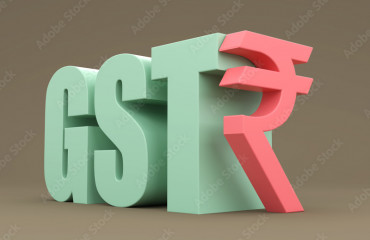
Airport operators want the govt to instruct airlines not to deduct tax at source while paying user development fee collected from passengers. Drone makers want a lower GST, while component makers are seeking incentives to boost local supply chains.
As finance minister Nirmala Sitharaman prepares to unveil the Union Budget 2024-25 later this month, the civil aviation industry expects policy interventions aimed at ease of business and reducing the tax burden on the sector.
In a memorandum, private airport operators have sent the government several suggestion pertaining to rationalisation of both direct and indirect tax structure. A copy of the memorandum has been reviewed by Mint.
In the memorandum, the Association of Private Airport Operators, whose members include GMR-run Delhi International Airport Ltd, and Adani-operated Mumbai International Airport Ltd, has requested the finance ministry to issue specific clarifications regarding tax charged by airlines on user development fee, which is paid by passengers.
"Since airlines are acting just as a collection agent, they should not deduct tax at source on such an amount while making payment to airport operator. It leads to blockage of working capital of the airport operator," the private airports body said.
Read more: GST Council to decide on waiving disputed tax liabilities under new provision
Further, the grouping has also requested the government to increase duty-free allowance to ₹100,000 for purchase from a duty-free shop in India, from the current ₹50,000, a limit that was fixed in April 2016. In line with inflation and to increase foreign earnings, the association has also requested the government to allow duty-free shop operators to sell domestic Indian liquor at departures tax-free and be treated as export.
For airlines, the cost burden due to the price of aviation turbine fuel (ATF) remains a crucial challenge. Indian airlines have long demanded that the government further rationalise the duty structure for ATF and to include it under the goods and services tax regime.
ATF, or jet fuel, amounts to nearly 40% of an airline's total expenses, compared to a global average of 20-25%. While the price of jet fuel saw a sequential reduction of 6.5% in June to ₹94,969.01 per kilolitre in New Delhi, it still remains much higher compared to pre-pandemic levels of around ₹64,000 per kl in 2019-20.
The private aircraft operators are keen to seek clarity on the 2.5% import duty for aircraft imported for non-scheduled operations. The industry is hopeful that the government will do away with this tax, which was imposed around 15 years ago.
Read more: IndiGo, Air India leverage AI-based tools to improve customer care service delivery
Companies involved in aircraft and engine component manufacturing are optimistic about incentives to boost the domestic supply chain, as Indian airlines including Air India, IndiGo, Akasa now have a cumulative orderbook of more than 1 600 planes.
